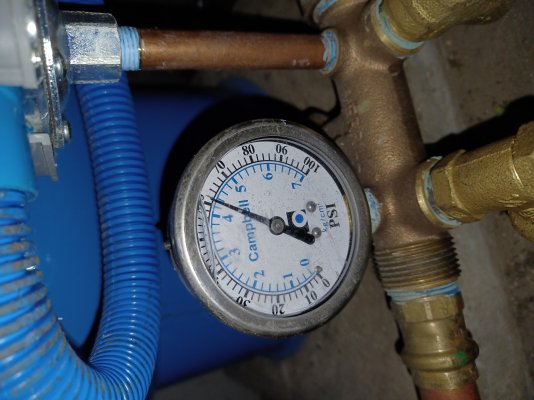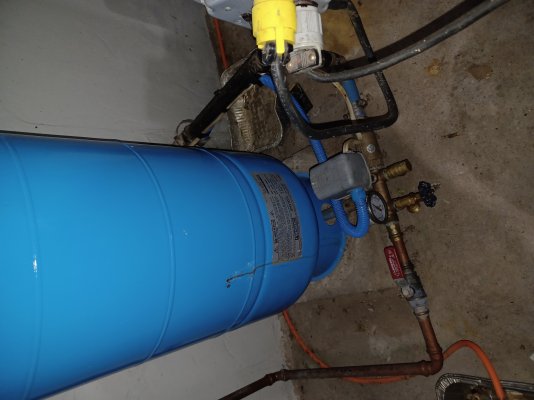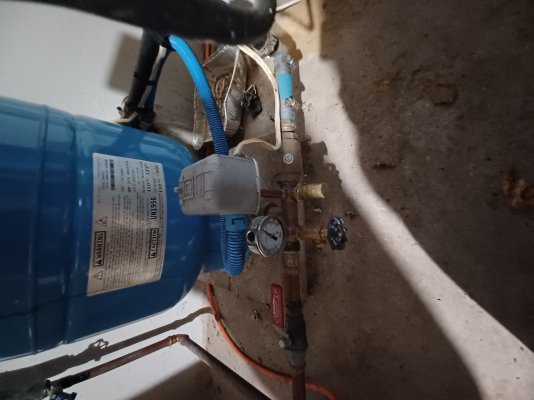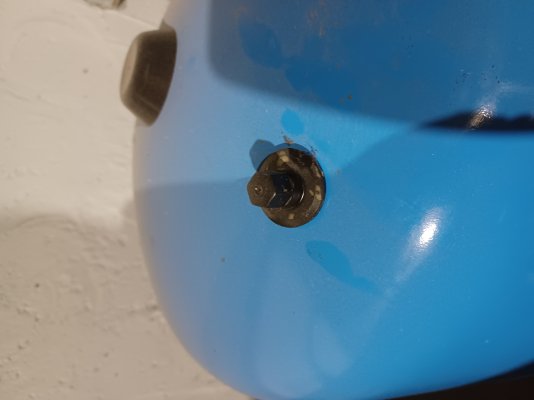This is probably going to sound bizarre, but it has happened at least three times.
I just used the kitchen sink cold water faucet to fill a one gallon humidifier container and I started hearing a loud humming sound. The sound seemed loudest in the first floor bathroom. I have a Toto toilet. When I flushed the toilet the humming sound stopped.
The first time this happened I am not sure if I was using the water in the kitchen sink or not.
The second time was after a meal and my stepfather was using the kitchen sink to wash dishes.
Any idea what might be causing this?
[edit] I probably should have used Google first. I just did and it seems to imply that water pressure is too high, which would maybe track with lowering the pressure by flushing the toilet.
[edit2]
I went down in the basement and looked at the gauge on the water tank. The first time I could not read it but the arrow was straight up (35?) after using water for a little bit but without humming the arrow was a bit to the right and pointing at "4". Would that be 40 libs?
What controls the water pressure in the tank? Something on the tank that triggers the well pump to go on and off?
I just used the kitchen sink cold water faucet to fill a one gallon humidifier container and I started hearing a loud humming sound. The sound seemed loudest in the first floor bathroom. I have a Toto toilet. When I flushed the toilet the humming sound stopped.
The first time this happened I am not sure if I was using the water in the kitchen sink or not.
The second time was after a meal and my stepfather was using the kitchen sink to wash dishes.
Any idea what might be causing this?
[edit] I probably should have used Google first. I just did and it seems to imply that water pressure is too high, which would maybe track with lowering the pressure by flushing the toilet.
[edit2]
I went down in the basement and looked at the gauge on the water tank. The first time I could not read it but the arrow was straight up (35?) after using water for a little bit but without humming the arrow was a bit to the right and pointing at "4". Would that be 40 libs?
What controls the water pressure in the tank? Something on the tank that triggers the well pump to go on and off?
Last edited:




